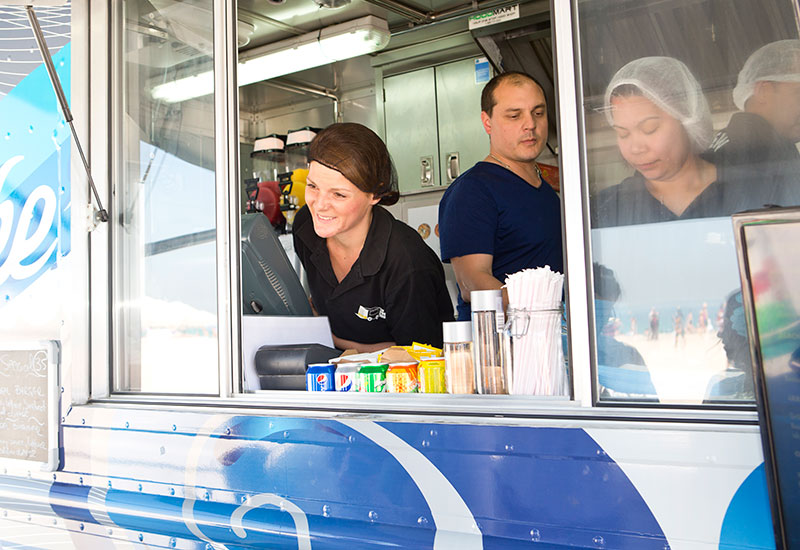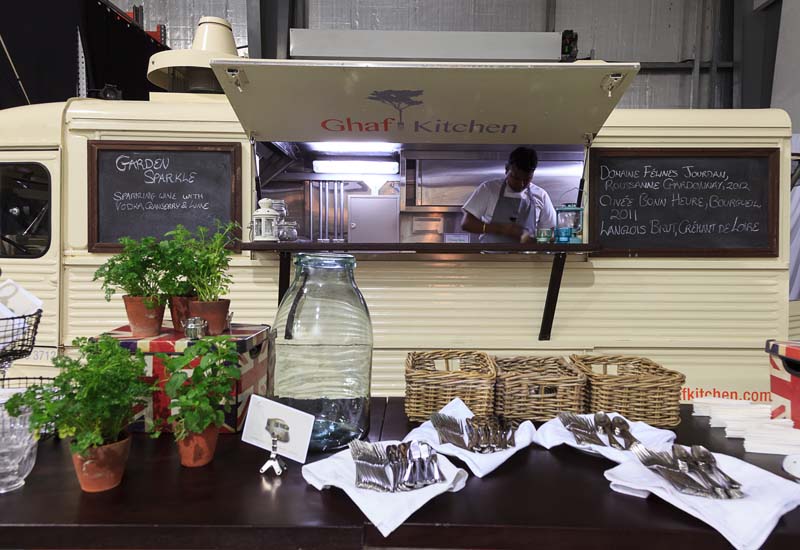It’s a phenomenon that has captured the attention of the world. While food trucks are ubiquitous in certain cities in the USA, Australia, and the UK, the UAE is now getting its fair share dotting the skyline. Caterer Middle East investigates the trend, its staying power, and what restaurateurs need to think about if they decide to get in the driver’s seat
When the movie Chef was released last year, it captured the attention of foodies the world over. In addition to making viewers absolutely ravenous after watching it, the concept of food trucks was firmly fixed under the spotlight.
Not an unknown concept in foodie capitals such as Los Angeles, London or Melbourne, food trucks were not the norm in the Middle East. Certainly in the UAE, the primary obstacles used to be regulations, especially surrounding food safety and hygiene.

| Advertisement |
A few years ago, ice cream truck Desert Chill pioneered the concept in the UAE, and it was the first time mobile food was introduced in any way. However, soft serve was not an option allowed in the truck, but it was the first step.
More recently, we saw the likes of Ghaf Kitchen (read the September 2014 issue for the full story) cater at events. What was next? A roving burger truck called Salt that announced its location through Instagram. It was food truck season, and still is.
Over the last few months, we’ve seen announcements from various companies about moving into this niche market, and have had whispered conversations with restaurateurs on their plans to conquer the roads.
To support the industry, relevant government departments are also involved. In Dubai for example, aspiring food truckers need to look at what requirements need to be fulfilled with the Directorate General of Civil Defence, Road & Transport Authority, Department of Economic Development, and the Dubai Municipality. A hefty number of permissions, but worth it in the end if all the boxes are checked.
The word on the street was that a company called Eat Street was working on simplifying this process.
Eat Street’s Lawrence Assadourian says: “Eat Street, within its own talent pool, has vast exposure to mobile food, and we are very proud to be able to mentor entrepreneurs in the right direction when it comes to translating their food concepts into viable operations. And of course, an element is the current regulation of Dubai.
“As you know, there is a food safety policy in Dubai — it’s one of the best in the world. But it is very brick-and-mortar restaurant specific. Often a lot of entrepreneurs wishing to start mobile food have found it challenging to pinpoint the exact regulations.
“So we act as a one-stop-shop for them to really understand how the government is currently approaching mobile food, and the licensing requirements, whether it’s from Dubai Municipality, the RTA, the DED, or the Directorate of the Civil Defence.
“We hope that in the months to come, we will be able to build a symbiotic relationship with the different authorities to help them in their endeavour to develop a final tool-kit, if you will, that entrepreneurs can follow to set up their food business in an official capacity.”
Article continues on next page ...










 Search our database of more than 2,700 industry companies
Search our database of more than 2,700 industry companies










May 6, 2015 , Canada
As a Company who has manufactured American Food Trucks for over 15 years we did see an increase in inquiries fro the UAE and especially Dubai over the 3+ years. Even at the very early days in America there were hurdles to jump over as with any new venture where city councils are not sure how to t...